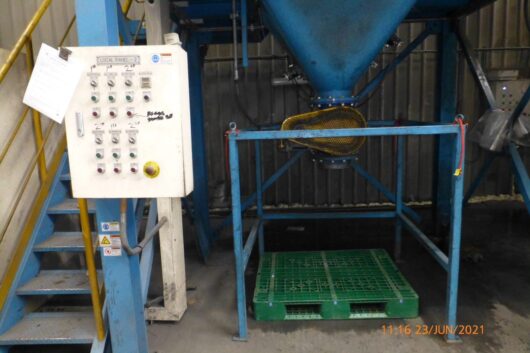The company was sentenced on Friday (February 5) after pleading guilty to five separate breaches of health and safety and hazardous waste regulations, in relation to 20 its employees at the facility being found to have levels of mercury in their system above UK guidance levels.
The Health and Safety Executive (HSE), which brought the prosecution in conjunction with the Environment Agency, said that several workers had reported ill health as a result of the exposure, including a pregnant woman who was concerned that her unborn baby was at risk.
And, it explained that five of the employees were found to have “extremely high” levels of the substance in their system as a result of the exposure, which occurred between October 2007 and August 2008.
During the case hearing, Bradford Crown Court heard that the exposure had been caused by ventilation problems at Electrical Waste Recycling Group's School Lane facility at Kirkheaton, Huddersfield.
The facility recycles electrical equipment including fluorescent light tubes which contain mercury and TV sets and monitors containing lead, and, as a result the court was told employees were exposed to what the HSE said were “potentially harmful emissions” from both substances.
Long-term health
Commenting after the sentencing, HSE inspector Jeanne Morgan said it was a “shocking case”, which involved a large number of employees facing the possibility of damage to their long-term health.
“The risks associated with handling toxic substances like mercury have been known for generations, so it is all the more unacceptable that something like this has happened,” she said.
“The company failed to see the risks created by their recycling work and failed to develop effective plans for safe working. They also did nothing to check their workers' health after exposure,” she added.
The HSE has issued five Improvement Notices and one Prohibition Notice to the company, which was formerly known as Matrix Direct Recycle Ltd, in relation to the incident.
Environment Agency
Max Folkett, site inspector for the Environment Agency highlighted the close work on the case between his body, the HSE and other organisations, and outlined exactly what action the Agency has taken in relation to the emissions.
“Electrical Waste Recycling Group Limited requires an environmental permit from us for the recovery and processing of hazardous waste and we routinely inspect the site to check the company is complying with the permit,” he said.
“We suspended the permit following this incident in August 2008, removing the risk of mercury escaping from the site, because of our concerns the operation posed a serious risk of pollution from mercury. Our soil monitoring around the site to check for long-term contamination showed metal levels not unusual for urban areas,” he added.
Breaches
The full list of regulations which Electrical Waste Recycling Group (EWRG) pleaded guilty to breaching were: Section 2(1) of the Health and Safety at Work etc Act 1974; three separate breaches of the Control of Substances Hazardous to Health Regulations 2002; and, one breach of the Control of Lead at Work Regulations 2002.
The company's director, Mr Thompson, 38, of Reinwood, Huddersfield, pleaded guilty to breaching Regulation 7(1) of the Control of Substances Hazardous to Health Regulations 2002.
Response
In response to the sentencing, EWRG stressed that the court accepted that it had purchased the plant from US manufacturers and that evidence made it clear that it was them who had failed to incorporate the necessary filters in their design to make the plant fit for the purpose.
It also said the court accepted there was no question of cost-cutting or financial profit on the part of EWRG and that the company had taken steps to remedy the issue, with the operation now working to a high standard.
And, EWRG added that the court was “satisfied” there was no evidential link between the mercury and lead exposure and the allegations of actual damage to health, with the sentencing being based on risk as opposed to actual harm done.
Duncan Martin, the company's group operations director, said, “The vapour leak that occurred during 2008 at our Huddersfield Lamp Recycling Plant has now been fully rectified and has been signed off by the relevant agencies”
He added: “It is regrettable that we have encountered these problems, but we are fully committed to the welfare of our staff and enjoy an excellent working relationship with the agencies that monitor our performance. We have invested a seven figure sum to overcome the issues which happened almost two years ago.
“We are encouraged to see that in the current climate we seem to be setting the standards and we believe as a result of our experiences and through our significant investment our plants now operate to higher standards than any other sites in the UK in this field.”











Subscribe for free